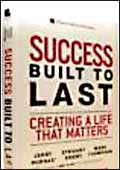 |
PRIVATE LABEL STRATEGY
Nirmalya Kumar & Jan-Benedict E.M. Steenkamp
Harvard Business
School Press
Pp: 247
Price: Rs 695 |
The last time around you went
shopping for grocery to, say, Big Bazaar, what did you buy? A Tata
or an Ashirwad (from ITC) salt packet or something that simply said
Big Bazaar and was somewhat cheaper? If you bought the latter, then
you may have started taking sides in an interesting battle that's
unfolding in the Indian retail industry: Manufacturer brands versus
retailer's store brands, also known as private labels in the marketer's
lingo. In mature markets such as the US, private labels are already
a big phenomenon. According to market research firm acnielsen, store
brand sales between 1997 and 2005 were up 64 per cent, compared
to manufacturer brand growth of 30 per cent. At last count, private
labels accounted for 15 per cent of total retail sales in the US.
But at giant retailers such as Wal-Mart, the figure is vastly higher
at 40 per cent-that's about $126 billion in lost sales for marketers.
Despite the growing importance of private labels around the
world, not enough time or money has been spent on understanding
this phenomenon. One reason could be that private labels are usually
shoestring brands: retailers don't spend any money on promoting
or marketing them outside of their own stores. In contrast, manufacturers
spend billions of dollars worldwide on researching and marketing
their brands. Therefore, marketing experts have tended to focus
on such brands. Even Kumar and Steenkamp's work, although significant
for focussing academic attention on private labels, explores the
phenomenon from the manufacturer's perspective-How to Meet the
Store Brand Challenge, is the strap beneath the book's title.
Nevertheless, the book should generate a lot of interest. For
one, private labels-at least in the US-are no longer what they
once used to be, and which is cheap and generic substitutes to
branded products. Increasingly, retailers are coming up with premium
store brands that don't just match manufacturer brands in terms
of quality and price, but sometimes exceed them. That's not yet
happening in India, but given the boom in organised retail, manufacturers
may find themselves faced with such competition very soon. Reliance
Retail, for instance, has plans of launching store brands in just
about every product category.
Therefore, Indian retailers and manufacturers who are keen to
learn from the experiences of their counterparts in developed
markets, will find plenty to take away from Kumar and Steenkamp's
work. For the manufacturers, the authors have this advice to give:
"...the private label threat can be addressed head-on by
pursuing seven strategic thrusts: change the mindset, partner
effectively, innovate brilliantly, fight selectively, price competitively,
improve quality constantly, and market creatively". And for
the retailers, there's a word of advice, too. "...Overemphasis
on private labels may actually decrease retailer profitability".
Read the book to find out why.
 |
SUCCESS BUILT TO
LAST
By Jerry Porras, Stewart Emery
and Mark Thompson
Wharton School Publishing
Pp: 278
Price: Rs 350
|
The English dictionary defines
'success' as the achievement of something planned or attempted,
or the attainment of wealth or power. But as we know, everyone defines
success differently. Someone may want to look at the million dollars
in his bank account and consider himself successful, while a penniless
activist may look at the way she's been able to change people's
lives, and think that she is successful. Who should you consider
as more successful? Not an easy question to answer, but Porass,
et al offer a new way of approaching the question. In Success Built
to Last, they have put together a new definition that is based on
interviews with more than 200 exceptional people around the world.
"Success in the long run has less to do with finding the best
idea, organisational structure, or business model for an enterprise,
than with discovering what matters to us as individuals," they
say. When people realise this, they go on to become, what the authors
call, builders-people "trying to make a difference doing something
that they believe deserves to be done with or without them, and
they recruit the team...needed to get it done". It's unlikely
that the book will turn you into a builder. But it will certainly
make you think along those lines.
|






